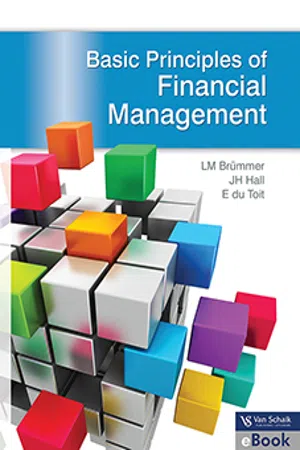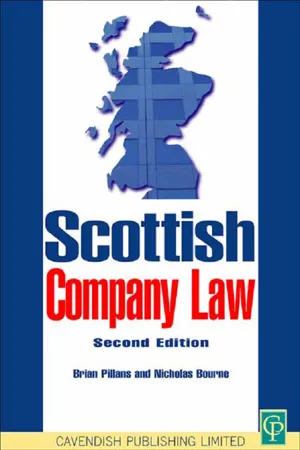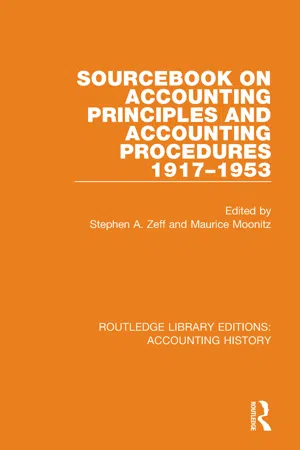Dividends
Dividends are a portion of a company's profits distributed to its shareholders as a return on their investment. They are typically paid out in cash but can also be in the form of additional shares of stock. Dividends are a way for companies to reward their shareholders and can be a key factor in attracting and retaining investors.
6 Key excerpts on "Dividends"
- eBook - ePub
Private Equity
Transforming Public Stock to Create Value
- Harold Bierman(Author)
- 2011(Publication Date)
- Wiley(Publisher)
...The corporation should distribute the cash to its stockholders if it cannot invest it to beat the investor’s opportunity cost. The attitudes of investors are important factors to be considered. Consistently increasing Dividends are generally welcomed by investors as indicators of profitability and safety. Uncertainty is increased by lack of Dividends or Dividends that fluctuate widely. Also Dividends are thought to have an informational content; that is, an increase in Dividends means that the board of directors expects the firm to do well in the future. Another important reason for the payment of Dividends is that a wide range of investors need the Dividends for consumption purposes. While such investors could sell a portion of their holdings, this latter transaction has relatively high transaction costs compared to cashing a dividend check. The presence of investors desiring cash for consumption makes it difficult to change the current dividend policy, even where such a change is dictated by the logic of the situation. Though one group of investors may benefit from a change in dividend policy, another group may be harmed...
- eBook - ePub
- Kalpesh Ashar, Vibrant Publishers(Authors)
- 2022(Publication Date)
- Vibrant Publishers(Publisher)
...The stability of Dividends is more important than whether the company pays high Dividends or not. As long as it pays stable Dividends, it will attract and retain like-minded investors. ● As per the Residual Dividend Model, companies estimate their profits and investment opportunities over a 5-10 years period, and decide their dividend payout ratio accordingly, in order to keep it constant. ● Another way companies distribute profits to investors is via dividend reinvestment plans. Instead of paying out cash Dividends, companies buy additional stocks in the investor’s name. ● Companies may split their stocks if the stock price has increased to a very high value. This is seen as a positive sign by the investors. Stock Dividends are similar to stock splits. Companies may give a 10% stock dividend to existing stockholders. This means that each stockholder will receive 10 additional shares for every 100 shares held without any extra cost. ● Instead of paying out cash Dividends companies often buy back shares. These are called treasury stocks. The company generally pays a premium when buying back stocks ● A stock repurchase also sends a positive signal to stockholders about the management’s expectations about future prospects....
- eBook - ePub
- Vibrant Publishers, Kalpesh Ashar(Authors)
- 2019(Publication Date)
- Vibrant Publishers(Publisher)
...Stability of Dividends is more important than whether the company pays high Dividends or not. As long as it pays stable Dividends, it will attract and retain like-minded investors. c) As per the Residual Dividend Model, companies estimate their profits and investment opportunities over a 5-10 years period, and decide their dividend pay-out ratio accordingly, in order to keep it constant. d) Another way companies distribute profits to investors is via dividend reinvestment plans. Instead of paying out cash Dividends, companies buy additional stocks in the investor’s name. e) Companies may split their stocks if the stock price has increased to a very high value. This is seen as a positive sign by the investors. Stock Dividends are similar to stock splits. Companies may give 10% stock dividend to existing stockholders. This means that each stockholder will receive 10 additional shares for each 100 shares held without any extra cost. f) Instead of paying out cash Dividends companies often buy back shares. These are called treasury stock. The company generally, pays a premium when buying back stocks. A stock repurchase also sends positive signal to stockholders about the management’s expectations about future prospects. *****...
- eBook - ePub
- Brümmer LM, Hall JH, Du Toit E(Authors)
- 2017(Publication Date)
- Van Schaik Publishers(Publisher)
...241 14 Dividend policy Learning outcomes After studying this chapter, you should understand the relationship between Dividends and retained earnings be aware of the difference between Dividends and earnings per share know what is meant by dividend policy be aware of the factors affecting dividend policy understand the aim and purpose of dividend policy know the procedures by which Dividends are paid fully understand the effects that dividend policy can have on share value and owners’ wealth. Introduction An important aspect to consider when investigating an organisation’s financial affairs is the dividend policy. It was stated earlier that Dividends are paid out in accordance with a previously devised policy and not in accordance with some haphazard payment plan. Furthermore, prospective investors and existing shareholders are keen to know on what basis Dividends are to be paid, since these represent their expected rewards. If this information is not available, few people would be prepared to risk their funds in a project which has a dubious system of rewarding its owners. Furthermore, there will always be a higher demand for shares in an organisation which has a reputation for regular and consistent payments of Dividends, especially during times of economic recession. As a result, the value of such shares will increase. For these reasons, dividend policy plays an important role in the financial affairs of an organisation and in promoting shareholders’ wealth. In this chapter, we shall consider some of the major aspects of dividend policy. There are also a number of theories concerning dividend policy, but these are beyond the scope of this book. Note that dividend policy refers only to ordinary shares and to ordinary shareholders – the true owners of the organisation. Dividend policy as such does not refer to preference shares or to preference shareholders...
- eBook - ePub
- Brian Pillans, Nicholas Bourne(Authors)
- 2012(Publication Date)
- Routledge-Cavendish(Publisher)
...Some articles, for example, specify ‘the profits of the business’, which is taken to mean that Dividends can only be paid out of trading profits and not out of capital profits. The proportional distribution of any declared dividend among the shareholders will also depend upon the articles. In Hoggan Tharsis Copper and Sulphate Co (1882), it was held that, where there was no express provision in the articles, the dividend would be allocated according to the extent to which each share was paid up, or, if the company did not have a share capital, equally among the members. 8.1.2 The Stock Exchange In addition to the requirements set out in the company's constitution, The Stock Exchange provides rules for companies that are listed or are dealt with on the Alternative Investment Market. The Stock Exchange requires that the date of any board meeting at which the declaration or recommendation of payment of a dividend is expected to be decided must be notified to The Stock Exchange in advance; it will then publish the information. The Stock Exchange issues a schedule of suitable dates to assist in settlement of transactions and to permit securities to be traded ‘ex-Dividends’ from a convenient date. 8.1.3 Statutory provisions If the regime relating to the payment of Dividends used to be somewhat lenient, that changed with the Companies Act 1980. Amendments were made by the Companies Act 1981 and the provisions are now consolidated in the Companies Act 1985. A company may not make a distribution which includes paying a cash dividend except out of the profits available for distribution (s 263(1) of the Companies Act 1985). The statutory provisions of the Companies Act 1985 apply to distributions. These are defined in s 263(2) to include any distribution of the company's assets to its members. The definition is an extremely wide one and covers any benefits in cash or in kind...
- Stephen A. Zeff, Maurice Moonitz, Stephen A. Zeff, Maurice Moonitz(Authors)
- 2020(Publication Date)
- Routledge(Publisher)
...split-up which, for convenience, is effected in the form of a stock dividend. The Accounting Research Bulletin referred to in the foregoing also contained the following statement with respect to the corporate recipient of a stock dividend: An ordinary stock dividend is not income from the corporation to the recipient in any amount. Upon receipt of such a dividend the cost of the shares previously held should be allocated equitably to such shares and to the shares received as a stock dividend. The Exchange has modified its policy, as previously expressed in reports adopted in September 1929 and 1930, to conform to this position....





